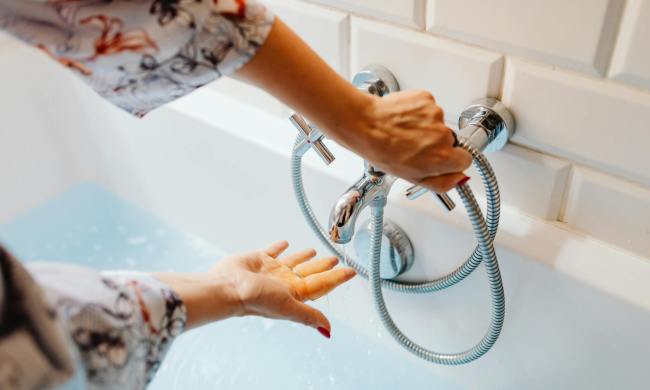Aprons are a beloved kitchen accessory in many homes, but are they really worth it? Professional chefs boast about the benefits of wearing an apron, often persuading each home cook to accrue a few during their lifetime. However, we had to ask ourselves if this is necessary.
In this article, we break down all of the apron myths about guarding your clothing against food stains and protecting your food from dirt, hair, and other particles in the kitchen. So, if you’ve been wondering whether or not you should ditch the apron, keep reading.
They don’t protect your clothing
A common misconception about aprons is that they protect your clothing. Food, grease, dirt, and grime stains are potential outcomes of working in the kitchen. However, most home cooks don’t experience such stains because they aren’t making high-intensity five-course meals.
However, for those who love to experiment, your apron still may not protect you from a splash of grease. Most aprons only cover a small portion of your chest and midsection, with most of the fabric focused below the waist. If grease splashes on your arm or upper body, it is unlikely that your apron will save your clothing.
Additionally, some aprons are made of a thin fabric which might allow grease and food stains to seep into layers beneath the apron. If you are purchasing an apron to protect your clothing from stains, you might be better off buying some thrifted attire that you don’t mind ruining.

They carry dirt and grime
One of the leading reasons you don’t need an apron is that they carry dirt and grime that you can transfer unknowingly to your food. Most people don’t wash their aprons after every use, but it would be better if they did.
Whether you can see the stains or not, food residue is likely on your apron. It’s not uncommon for people to wipe their hands on their apron while they cook. In doing so, they transfer small particles of food to the fabric.
Unfortunately, washing your apron after every meal can be taxing. It might be better to skip the apron altogether.
It can become a fire hazard
Most house fires begin in the kitchen, and it’s no surprise that many cooks do their best to prevent any fire hazards while cooking. A common misconception among apron lovers is that the apron ties back all of your loose clothing to help avoid kitchen hazards.
However, as we mentioned above, most aprons focus on covering the lower portion of the body and not the upper part. If you choose to wear a long sleeve shirt or a loose-fitting shirt, your apron will do little to tie it back. Additionally, aprons need to be tied around the waist. These ties are susceptible to getting caught on something or gracing flames depending on how they’re worn.
If you’re worried about your clothing being a fire hazard in your kitchen, you can opt to wear tighter fitting materials. Opt for a short-sleeve shirt and avoid wearing any wrist accessories. If you have long hair, always tie it back and avoid any dangling jewelry.

It’s just not needed
We’ll admit that aprons are cute. They come with little embroidered decorations and sometimes pockets or frills to create an aesthetic appeal. While we do think they are pretty to look at, they’re not entirely functional. Since you can cook just fine without one, we had to ask ourselves if they were even necessary.
We conclude that they’re not.
Instead of wearing an apron, you can opt for a tight-fitting short-sleeve shirt that you got from the thrift store and don’t mind dirtying. Unless you love experimentation or are new to cooking, it’s unlikely that you’ll stain your clothes.
Aprons don’t seem necessary to create a delicious meal. They don’t provide much protection, and they aren’t as functional as they could be. While they may be a wonderful component in professional kitchens, where chefs are surrounded by large fryers, pans, and sauces for extended amounts of time, the average home cook is less likely to need one.
So, maybe it’s time to throw out your apron. Or, if you love the aesthetic, perhaps it could remain hung up nearby as an element of kitchen decor.



